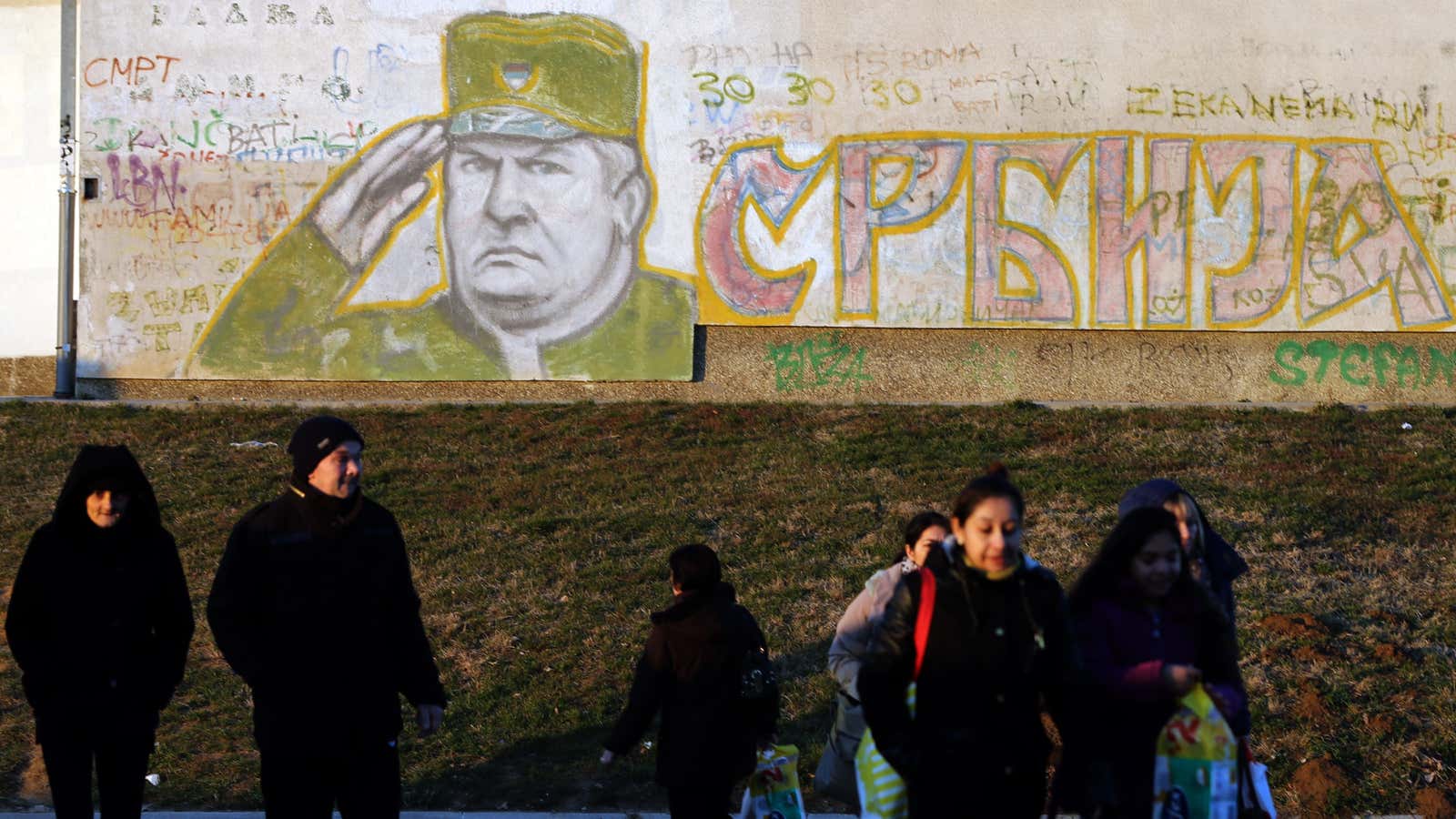No amount of nationalism, it appears, can Balkanize a language. Twenty-five years after the former Socialist Federalist Republic of Yugoslavia was split into Serbia (which later split again to form Montenegro in 2006), Bosnia, Croatia, Slovenia, and Macedonia, a group of linguists have declared that Bosnian, Serbian, Croatian, and Montenegrin are all just versions of the same language. (Macedonian and Slovenian languages remain different.)
Before the fragmentation of Yugoslavia, citizens of the region generally spoke a language known as Serbo-Croatian. As each country gained independence, the local version of the language was renamed. But linguists now say that the roots of language commonality in the region stretch much further back than Yugoslavia. Therefore, this common language isn’t being called Serbo-Croatian, and doesn’t have a new name yet. While any proposed label will inevitably be the subject of heated political debate, the Balkan Insider reports that it could be called Euroslav.
This linguistic development is the result of four language conferences, each held in one of the four former Yugoslav countries being studied. On March 30, the conference participants signed a Declaration of Common Language in Sarajevo contending that all languages spoken in the Balkan states that formerly spoke Serbo-Croatian should be considered the same.
The declaration was drafted by 30 linguists and signed by over 200 researchers, writers, scientists, and activists. The research was sponsored by the Krokodil Association (link in Serbian—or, well, Euroslav), a linguistic and cultural organization based in Belgrade and partnered with ForumZFD, the Balkan branch of a German organization promoting peace.
According to the researchers, none of the four languages studied differ enough from one another to be considered different languages; speakers of each language can also understand each other despite regional nuances. This is an example of a ”polycentric language,” or a language that developed in parallel in different states.
Indeed, a quick analysis of similar sentences in the different languages show very little variation. (Montenegrin is the language that most differs from the others.) This is how Universal Declaration of Human Rights translates:
- Croatian: Opća deklaracija o pravima čovjeka
- Bosnian: Opća deklaracija o pravima čovjeka
- Serbian: Opšta deklaracija o pravima čov(j)eka
- Montenegrin: Univerzalna deklaracija o ljudskim pravima
Indeed, there are more significant differences between different strands of German (Switzerland, Germany, Austria) than amongst the languages of former Yugoslavia. Going forward, the Balkan research could provide an important framework for understanding other polycentric languages, such as English or Spanish.
Snjezana Kordic, one of the linguists who drafted the declaration, explained how acknowledging the region’s shared language may also serve as an antidote to nationalism. Following the dissolution of the Soviet Union and Soviet dictator Josip Broz Tito’s fall from power in then-Yugoslavia, ethic nationalism and self-determination sparked a series of wars stretching between 1991 and 2007. These conflicts fractured the territory into several ethnic-based states. The political situation in the area has historically been a strong example of ethnic-based division that it coined a term to describe similar conflicts: Balkanization.
Predictably, nationalists—in all of the countries involved—are already criticizing this idea. Augustus Kovačec, one of the region’s most prominent linguists, called the declaration “vague and unnecessary,” and labeled it a provocation (link in Croatian). Members of the Croatian government seem to agree: The culture minister and prime minister warned that creating a comma language could undermine the self-determination of individual Balkan states and related it back to the artificial unity imposed under Tito’s regime.
